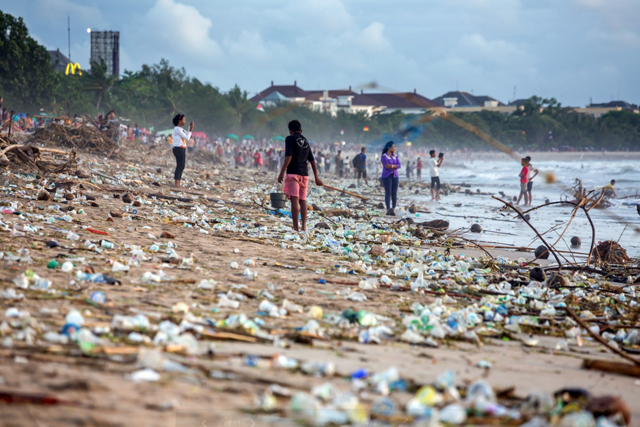The environment’s loss is ours too, if only we knew it.

Humanity is destroying itself. That’s the only conclusion to reach after an exhaustive scientific assessment of life on Earth found that the likely extinction of over a million species of plants and animals within decades will have “grave impacts” on people everywhere.
“Human actions threaten more species with global extinction now than ever before,” the report says, and as a result we are a threat to our own food and water security, health and social fabric.
Given that we continue along the high-growth, high-consumption, high-waste pathway, this seems like suicide. But it’s actually a matter of avoiding hard choices and hoping they’ll go away.
The public response in Australia should quash any thought that rationality carries weight in politics. At news of last week’s report from the Intergovernmental Platform on Biodiversity and Ecosystem Service (IPBES), Campaign 2019 barely missed a beat.
Labor referred questioners to its already-announced $100 million native species protection fund – better than we have now but a small fraction of what ecosystem scientists say is needed – and its pledge to establish an environment protection authority.
For his part, prime minister Scott Morrison said the government had already acted on IPBES concerns (ludicrously, he was referring to a law to regulate cosmetic tests on animals) but then promised to cut “green tape” – environmental regulation – and attacked Labor’s environment plan.
Conservative news and commentary, still going through the awkward process of coming to terms with man-made climate change, was firmly in the latter camp. There is no extinction crisis, declared Andrew Bolt of the Herald-Sun, adding that the only thing at risk of extinction is reason.
The lines must have been running hot at Conspiracy Central when it became clear that IPBES spokesman Robert Watson is the same leading climate scientist attacked by fossil fuel interests two decades ago and subsequently, under US pressure, ousted as head of the UN climate panel.
But all such attacks are a baseless distraction. The report was a three-year effort by 145 top experts from 50 countries, including Australia, with input from another 310 contributing authors. There is no remotely comparable contrary assessment. We have no option but to take this seriously.
IPBES found that nature is in decline and species are being extinguished at rates unprecedented in human history. We have seen off over 80 per cent of land mammal species, and around a third of marine mammals and reef-forming corals are on course for extinction within decades.
Deforestation is putting increasing pressure on terrestrial species and land resources, which the report finds are best managed by indigenous people. Runoff from excessive use of agricultural fertilisers is creating dead zones in coastal seas, with impacts right up the marine food chain.

Every year, as much as 400 million tonnes of heavy metals, solvents, toxic sludge and other industrial wastes are being dumped into the world’s waterways. Four-fifths of our wastewater globally is being discharged back into the environment without treatment.
The report found that marine plastic pollution is 10 times what it was 40 years ago, causing death or disease in 86 per cent of marine turtles, 44 per cent of seabirds and 43 per cent of marine mammals.
Apart from the odd signature event like the 1983 Franklin River blockade, the natural environment has not been a political focus in Australia. The Greens tried to change that, but in the process unwittingly opened the door to the false notion that environmentalism is a political brand.
There are still people who don’t care about any life but their own – that’s obvious from the extreme self-obsession seen in today’s public life. But I doubt that anyone, even the hard nuts who run the country, could remain indifferent if they were directly confronted with what extinction means to us.
People feel uneasy about death and disease in others for a good reason. Embedded deep in our DNA is the knowledge that our survival depends on other functioning life forms and the ecosystems they are part of. It’s natural to feel bothered when animals and plants disappear.
Becoming aware that we’re messing up the climate is a start. It’s no great extension to accept that nature is not endlessly renewable, and messing it up has real consequences for economic security.
Political, bureaucratic and business leaders continue to claim economic success on the back of the current market value of goods and services, but they shut environmental impact out of calculations. We are left with false data, living in a fool’s paradise headed for calamity.
The last word in the IPBES title acknowledges what our leaders do not – that Earth’s biodiversity and ecosystem are a service. Not just any service, but the only really essential one. Our impact on nature (including the climate) has a huge negative value that we’ve failed to account for.
Giving voice and substance to that all-important environmental bottom line in our national accounts ought to be the determining issue of the 2019 election. Nothing else comes close.
